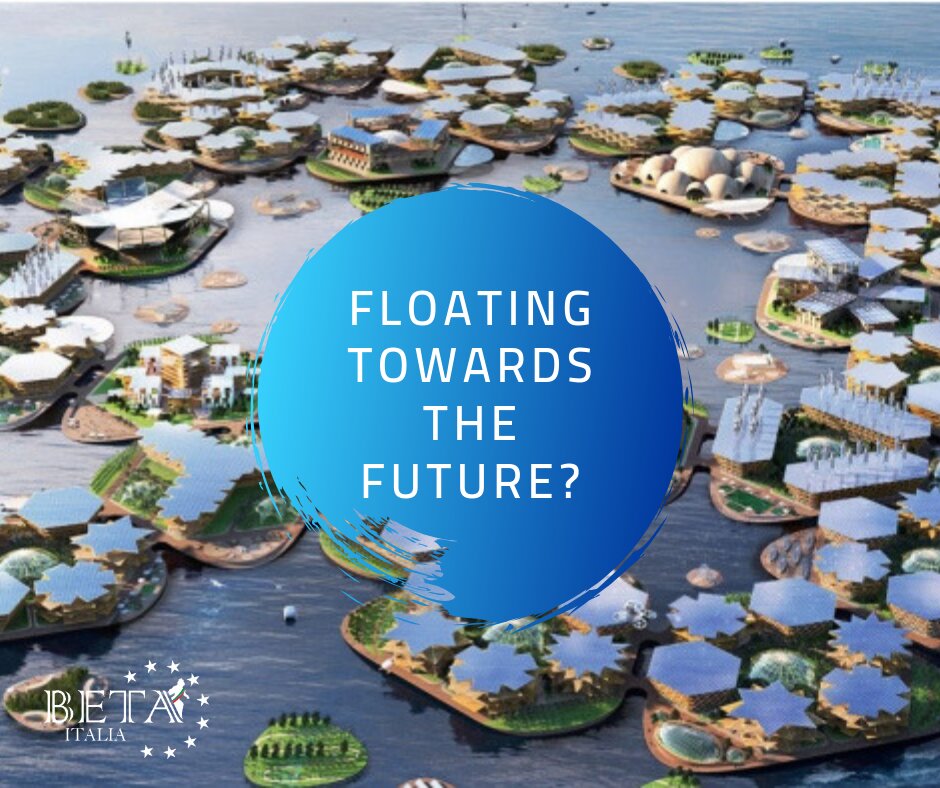Floating towards a new future?
On Wednesday April 3rd, UN Habitat, the United Nations programme working towards a better urban future, presented a project of innovative housing solutions, in cooperation with Oceanix City, MIT University and The Explorers Club. The concept consists of a cluster of floating artificial islands, built together to form villages. The idea behind floating cities is to propose a solution to urban development taking into consideration issues such as climate change.

A UN report confirms indeed that by 2030 over 70% of the world’s population will live in cities. Taking into consideration these data, it is therefore a priority to promote and develop a more sustainable lifestyle even in the housing sector: Oceanix City floating houses are showcased as a new habitation solution for the future. Those cities are artificial islands anchored to the seabed. A cluster of islands could host a 12-hectare village with 1,650; more clusters can be be combined to form an archipelago which supports up to 10,000 citizens. The name of the project is “Oceanix City” and sustainability is at its very core: a zero-waste policy will be pursued and buildings will be designed with locally originated materials and will rely on renewable energy resources such as solar panels and wind turbines.
The UN Deputy Secretary-General, Amina Mohammed, who spoke during the presentation of the project, commented as such: “We have come together here to think ahead and reimagine our cities and our urban agenda”. The creators of Oceanix City want to convey the idea that floating cities are not a quick fix to the issue of climate change and rising sea levels (which are expected to affect 90% of the world’s coastal cities by 2050). These kind of cities could indeed be a defence against natural disasters, able to resist to violent hurricanes and tsunami as well as wind of over 250 km/h.
The only concern seems to revolve around the question “are floating cities a realistic solution or are they just a utopian idea?”. Richard Wiese, president of Explorers Club thinks that the main concerns regarding the project are now more psychological than strategic: ‘people psychologically get nervous at the term “floating city”’, he said. Wiese then proposes to start by extending existing cities with floating modules in order to get people used to them. Potential cities for such experiment are New York and Hong Kong.
The presentation of Oceanix City was just the beginning of a debate that will be carried out from 27th till 31st of May in Nairobi, during the UN Habitat Assembly, whose main theme is “Innovation for better quality of life in cities and communities”. The goal of the conference is to create a platform for discussion for leading companies, innovators, and scientists along with UN-Habitat aimed at identifying and creating a better urban future and environmentally sustainable human settlements plans. What role floating cities will play in these future is yet to be settled, but they will surely be at the centre of a more and more important and impelling debate.
Sources:
- https://oceanix.org/
- https://unhabitat.org/roundtable-on-floating-cities-at-unhq-calls-for-innovation-to-benefit-all/
- https://www.dezeen.com/2019/04/04/oceanix-city-floating-big-mit-united-nations/
- https://www.avontuura.com/oceanix-city-by-big-and-partners/
- https://www.bbc.com/news/world-47827136
Image credits:
Based on 01_Oceanix City_Aerial_Image by OCEANIX/BIG-Bjarke Ingels Group



